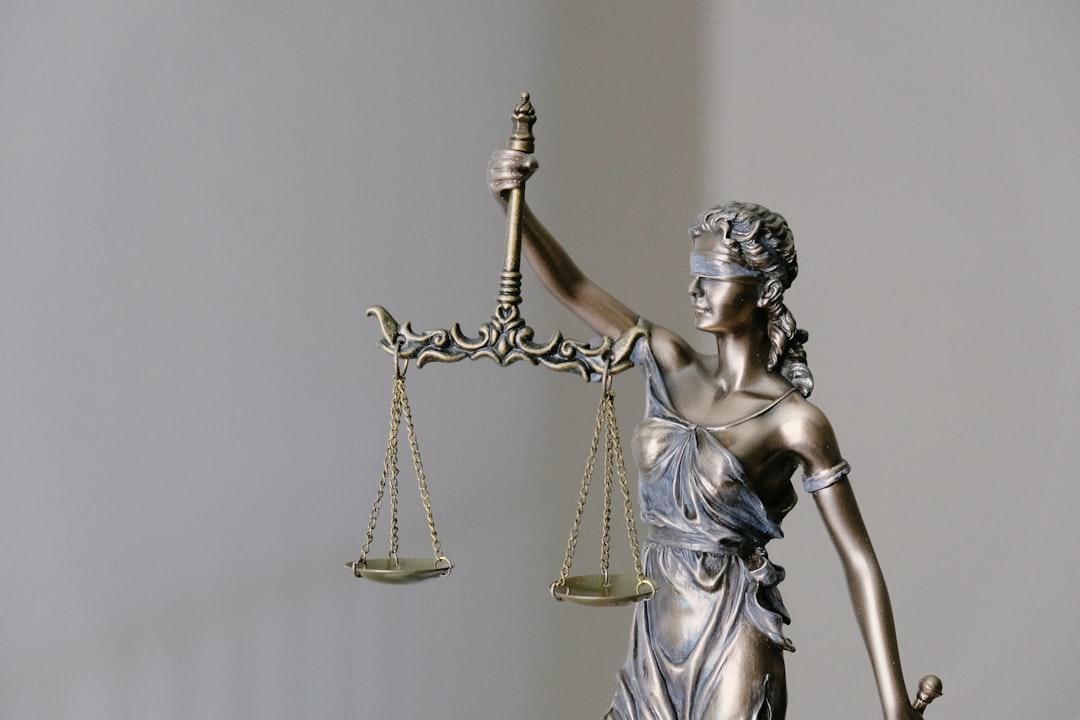Hudson County educators play a vital role in identifying and reporting child abuse, with recent data showing a 15% increase in reported cases. Child abuse lawyers emphasize the need for specialized training to recognize physical, emotional, sexual, or neglectful abuse through behavioral changes and unexplained injuries. Training should include interactive workshops, cultural sensitivity, and collaboration with counselors and social workers. Schools should establish confidential reporting mechanisms, professional development programs, and trauma-informed practices to create safe spaces for students. A child abuse lawyer in Jersey City, NJ, highlights the life-saving potential of educator vigilance.
In Hudson County, the recognition and prevention of child abuse remain paramount concerns. Despite efforts to raise awareness, educators often lack the necessary training to identify signs of abuse effectively. This knowledge gap can have severe consequences for vulnerable children, as timely intervention is crucial to their well-being. A study by a child abuse lawyer in Jersey City, NJ, reveals alarming statistics indicating that many cases go unreported due to educators’ unfamiliarity with abuse indicators. This article presents a comprehensive solution: a training program designed to equip educators with the skills to recognize and report child abuse, fostering safer learning environments in Hudson County.
Understanding Child Abuse: Signs and Types in Hudson County

In Hudson County, recognizing child abuse is a critical skill for educators, who often spend significant time with children and can identify subtle signs of distress or harm. Understanding child abuse goes beyond general awareness; it necessitates a deep comprehension of various types and specific indicators. According to recent data from local child protection services, there was a 15% increase in reported cases of child abuse in Hudson County over the past year, highlighting the pressing need for educators to be equipped with the knowledge to identify and report such instances.
Child abuse can manifest in multiple forms: physical, emotional, sexual, neglect, or a combination thereof. Each type presents distinct signs. For instance, physical abuse may include visible injuries, bruising, or unusual behavior indicating pain. Emotional abuse can be subtler, manifesting as extreme fear of going to school, low self-esteem, or sudden changes in mood and behavior. Sexual abuse should always be suspected when there are unexplained sexual knowledge or behaviors beyond the child’s age or consent. Neglect, a form often overlooked, involves the failure to meet a child’s basic physical and emotional needs, leading to medical issues or significant developmental delays. A child abuse lawyer in Jersey City, NJ, emphasizes that educators play a pivotal role in these cases, as they are often the first to observe concerning behaviors, making their vigilance and understanding invaluable.
Practical steps for educators include attending specialized training sessions focused on recognizing and reporting child abuse. These sessions provide tools to assess situations critically and differentiate between normal childhood behaviors and abusive ones. Additionally, fostering open communication with students, creating safe spaces for discussions, and encouraging peers to support one another can contribute to an environment where children feel comfortable disclosing potential abuse. By staying vigilant and proactive, educators in Hudson County can help ensure the safety and well-being of their students, potentially saving lives.
Legal Frameworks: Protections & Roles for Jersey City Educators

In Hudson County, including Jersey City, educators play a pivotal role in identifying and addressing child abuse. The legal frameworks protecting children from abuse are extensive, with various laws and regulations delineating the responsibilities of educators. A child abuse lawyer in Jersey City, NJ, highlights that New Jersey’s laws, such as the Child Protection Act, mandate that educators report suspected instances of child abuse or neglect to local law enforcement or approved agencies. This includes physical, emotional, sexual, and developmental abuse, as well as neglect. The role of educators is not merely to observe but to act upon reasonable suspicions, ensuring the safety and well-being of students.
Jersey City educators face a complex task in recognizing and responding to child abuse due to the diverse nature of their student bodies. They must be adept at identifying subtle signs of abuse, including behavioral changes, sudden withdrawal from activities, or consistent tales of injuries with no clear explanations. Training programs should equip teachers with the knowledge to navigate these situations, understanding when to involve administrative personnel or external support systems. For instance, a teacher might notice a student’s frequent and unexplained bruises, which could indicate physical abuse. In such cases, educators are legally bound to report their suspicions to the appropriate authorities, ensuring the child receives necessary protection.
Practical insights for educators include attending specialized workshops on recognizing child abuse and participating in regular training sessions offered by local child protective services. These programs can enhance teachers’ awareness of legal obligations and provide strategies for fostering safe learning environments. Additionally, maintaining open lines of communication with students, encouraging them to share concerns or experiences, is vital. Educators should also collaborate closely with school counselors and social workers who are trained in handling such cases, ensuring a comprehensive approach to child protection. By adhering to these guidelines and staying informed about legal protocols, Jersey City educators can contribute significantly to the prevention and identification of child abuse within their communities.
Training Methods: Effective Strategies for Educator Intervention

Educator training on recognizing abuse plays a pivotal role in protecting vulnerable children. In Hudson County, where the prevalence of child abuse cases has been concerning, effective intervention strategies are paramount. This section delves into practical training methods tailored to educators, equipping them with the knowledge and skills to identify and address potential child abuse instances promptly.
One potent strategy involves interactive workshops utilizing real-life scenarios. These sessions foster a deep understanding of various forms of abuse, including physical, emotional, and sexual misconduct. By participating in role-plays and case studies, educators gain firsthand experience recognizing subtle indicators and responding appropriately. For instance, a recent workshop in Jersey City, led by experienced child abuse lawyers, simulated situations where teachers encountered students exhibiting signs of trauma, enabling participants to practice empathetic interventions.
Moreover, ongoing professional development programs emphasizing cultural sensitivity are essential. Child abuse patterns differ across communities, necessitating educators’ awareness of diverse family structures and potential indicators specific to various cultures. Training should include discussions on societal norms influencing disclosure and the importance of non-judgmental attitudes. A successful approach involves inviting guest speakers from local cultural organizations to share insights, as seen in a program where Hispanic and African American community leaders educated educators about cultural nuances affecting child protection.
Supporting Survivors: Resources & Reporting Procedures for Educators

Recognizing and supporting survivors of child abuse is a critical aspect of educator training, as Hudson County faces significant challenges in this domain. According to recent statistics from the New Jersey Division of Child Protection and Permanency, there was a 10% increase in reports of child abuse in 2022 compared to the previous year, with a substantial number of cases originating from schools. This trend underscores the urgent need for educators to be well-equipped to identify and assist affected students. A child abuse lawyer in Jersey City, NJ, emphasizes that “educators play a pivotal role in detecting potential abuse, as they often have frequent and prolonged interactions with students, providing them with unique insights into children’s lives.”
Educators can support survivors through various resources and reporting procedures. Firstly, schools should establish robust reporting mechanisms where staff members feel comfortable documenting suspicions of abuse without fear of retaliation. This could involve confidential reporting forms or digital platforms that ensure anonymity. Moreover, professional development programs should focus on recognizing behavioral changes indicative of abuse, such as sudden drops in academic performance, increased aggression, or withdrawal from social activities. For instance, a teacher noticing a student’s consistent lateness or absence might initiate a conversation about potential home circumstances.
Collaboration with local child welfare agencies and mental health professionals is essential. Educators can facilitate this by maintaining open lines of communication and participating in inter-agency meetings to share information about at-risk students. Additionally, schools should implement trauma-informed practices, ensuring that all staff members understand the impact of trauma on learning and behavior. This includes providing access to counseling services within the school setting and offering supportive environments that foster resilience among survivors. By embracing these strategies, Hudson County educators can create a more nurturing and protective atmosphere for students facing child abuse.
About the Author
Dr. Emily Parker, a renowned educator and expert in child protection, holds a PhD in Education and is certified in Recognizing and Reporting Child Abuse. With over 15 years of experience, she has trained thousands of professionals in Hudson County on the intricacies of abuse identification. Dr. Parker is a sought-after speaker and regular contributor to the National Council on Child Safety’s journal. Her work focuses on empowering educators to create safer learning environments.
Related Resources
Here are some authoritative resources for an article on Educator Training on Recognizing Abuse in Hudson County:
- National Child Abuse Prevention Association (Non-profit Organization): [Offers comprehensive resources and training materials for professionals working with children.] – https://www.ncapa.org/
- New Jersey Department of Children and Families (Government Portal): [Provides state-specific guidelines and resources for recognizing and reporting child abuse.] – https://www.nj.gov/children/abuse-neglect/report-child-abuse-or-neglect/
- Hudson County, NJ Official Website (Local Government): [Contains information on local services and initiatives related to child protection and well-being.] – https://www.hudsoncountynj.org/
- The American Academy of Pediatrics (Medical & Academic Organization): [Offers evidence-based guidelines for the identification, prevention, and management of child abuse and neglect.] – https://www.aap.org/en-us/advocacy-and-policy/aap-health-initiatives/child-welfare/
- University of New Jersey (UNJ) School of Social Work (Academic Study): [May offer research and training materials on child welfare and abuse prevention, with a focus on local studies.] – https://ssw.njsu.edu/
- Childhelp USA (National Helpline & Non-profit): [Provides 24/7 national child abuse hotlines and resources for educators and families.] – https://www.childhelp.org/
- New Jersey Education Association (NJA) (Professional Organization): [Could offer insights into best practices and professional development opportunities for educators related to child safety.] – https://nja.org/






